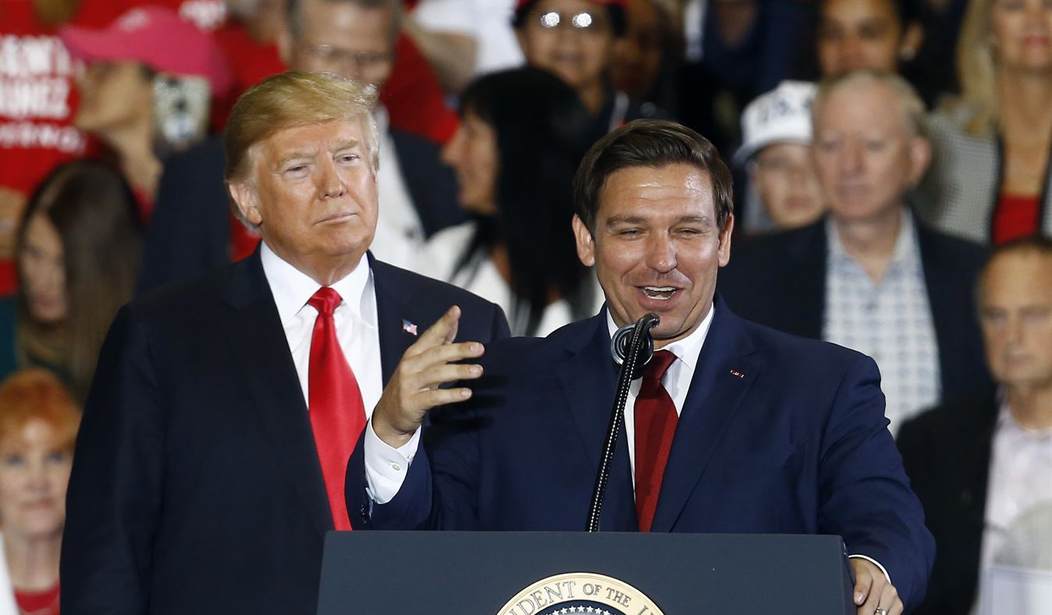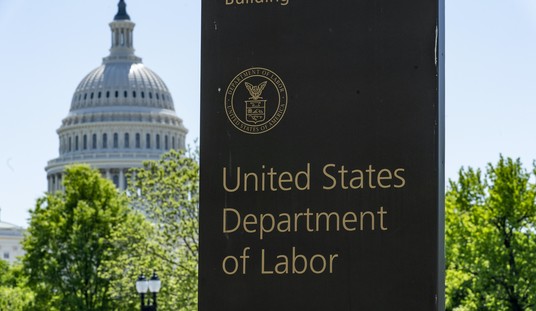My boys and I had a little exercise when they were young. After every academic, personal, or athletic setback, we changed that negative focus by asking: What one thing could they do differently the next time? What was the key lesson?
After losing a youth-football championship game, which was a big deal at the time, my 10-year-old nailed an important larger lesson for his life:
“Don’t get up for the game at 4:00 when the kickoff isn’t ‘til 7:00.”
Looking forward, Republicans could ask themselves the same sort of question after last week’s disappointing red ripple that was supposed to be a scarlet wave, or even a ruby tsunami.
As I’ve written here previously, media thrives on horserace coverage. It’s easier than real analysis, seems dramatic, and can be altered at will.
Last winter, the 2022 midterms were said to guarantee blowouts for Republicans, given the countless self-inflicted wounds by Joe Biden and his jolly band of spendthrifts – runaway inflation, gas price surges, a faltering economy, soaring crime rates, supply-chain shortages, wanton jacking of the national debt for political gain, sucking our strategic oil reserves dry. Serial lying and Biden’s wobbly mental state.
The beauty of horserace narratives for media is that audiences on both sides will eagerly consume them — Democrats because they’re worried, Republicans because they relish impending victory. And vice versa.
But wait! Along comes the Supreme Court’s discard of Roe and the headlines gained question marks: How much will the return of abortion rights to the states drive liberals to turn back the red tide?
Media declared it would have a huge effect. Liberals rejoiced. Conservatives fretted. They went back and forth for months. Finally, a red tide became inevitable again because of inflation and recession, probably maybe even a huge red tide. All this, of course, fed GOP over-confidence and motivated liberals to show up for certain.
In truth, nothing ever changed except the news narratives. They went poof, like a stock price tumbling simply because a company’s sales didn’t match what some expert said they might. Fodder for media make-believe.
Many conservatives believed that midterm hype. Now, we’re in a bizarrely perverse cycle. Republicans are badly disappointed despite likely gaining slim House control, which would paralyze Joe Biden’s liberal agenda for the second half of his last term.
And Biden is claiming victory because his party did not lose by as much as the fictitious narrative said they might. Anyway, nothing stops this man from saying whatever comes into what’s left of his mind, veracity be damned.
Remember how Bill Clinton sharply changed political course after his crushing 1994 midterm defeats and thus, easily won reelection two years later? Biden was asked since 75 percent of Americans now say the country is headed in the wrong direction, what is he going to do differently?
“Nothing,” said Joe Biden, who turns 80 next weekend, “because they’re just finding out what we’re doing.”
What happened in 2020 was American voters gave Democrats effective control of the Oval Office, the House, and Senate. As they did in 2008. And then, as they did in 2010, voters collectively pulled back and gave the other party House control.
No one ever accused our nation’s voters of paying close attention to their collective actions. Otherwise, they might not have voted so enthusiastically against Donald Trump without closely examining the shaky mental condition of the man they were actually electing.
Now, we seem stuck with him for 799 more days. That’s 1,150,560 minutes. Perhaps longer, if he follows through on his threat to seek reelection.
Last week, a reporter noted exit polls showing two-thirds of Americans do not want Biden to seek a second term. He asked Biden how that factored into his upcoming reelection decision. Good question actually. Biden, who rarely lets reality inhibit his remarks, answered arrogantly, “It doesn’t.”’
What was his message then to the folks whose financial and ballot support he will need? “Watch me!”
Now comes word of a “special” Trump announcement this week, presumably a 2024 campaign launch to get a jump on others and distract from looming legal probes.

This isn’t the best time for that, however. It will legally crimp his fundraising two years out. It will restrict what he can do with the $100+ million he’s already raised. He’ll be a target for longer. And his loud presence will complicate the Dec. 6 Georgia Senate runoff of Herschel Walker, his own handpicked candidate.
When Trump was president, he was so full of significant executive and legislative actions — on tax cuts, economic deregulation, job growth, energy independence, crushing ISIS, rebuilding the military, assembling a conservative Supreme Court majority, protecting religious freedom, securing the southern border, and more.
All of these significant actions outweighed Trump’s frequent forays into personal grievances and petty retributions, which could be dismissed as mere distractions.
But as you may have noticed from the state of the country and economy, Trump is no longer chief executive. All he’s got to gin up attention are formulaic rallies and petty retributions, which the adopted Republican is now aiming not at Democrats but at fellow GOP leaders he perceives as personally disloyal.
This includes Virginia Gov. Glenn Youngkin, who avoided Trump connections in his election last year, and Florida Gov. Ron DeSantis, whose reelection campaign just swamped his opponent in Trump’s home state.
DeSantis has called Trump a political mentor and Trump’s praised the governor as an ally. Trump, however, has a habit of regularly unfriending allies. Now, strangely, he’s even taken to mocking the governors’ names.
As time passed, Trump’s ongoing claim that he really won in 2020 is no longer gaining the same traction. Many Americans have moved on to more immediate and future concerns over inflation, jobs, decaying 401k values, and a president and vice president who too often sound like turkeys gobbling nonsense.
To underline his political clout and, he hoped, prompt potential 2024 rivals to abstain, Trump encouraged and endorsed a wide array of midterm candidates, many just before the election when outcomes seemed clear. Loyalty to him was key, as measured by professed denials of 2020 election results.
But our HotAir colleague David Strom noted an unexpected and ominous outcome of last week’s elections:
Republicans who didn’t talk much about Trump did quite well in the elections – better than predicted. And Republicans who were tied to Trump at the hip under-performed, even in deep Red districts.
Trump’s strategy and some sloppy vetting produced a number of novice candidates whose campaign organizations, staffs, and inexperience led to poor issue framing that failed to resonate with enough voters whose current pressing concerns do not include re-litigating moot vote counts.
As one result, the anticipated wave of election success did not materialize despite almost every top issue favoring Republicans.
Until now, Trump has remained easily the most popular Republican by an impressively loyal base since the Fifth Avenue billionaire became the most unlikely herald among 17 GOP competitors in 2015.
He earned Heartland voters’ enduring trust by recognizing and voicing their simmering anger and frustrations with both parties’ deaf, self-important, and unresponsive DC establishments.
Unlike those elites, Trump notably kept his campaign promises and broadened the GOP base.
Understandably, in his two-year absence from the political stage, Trump’s support has waned some even without any GOP competition.
Now, political attention is focused on 2024. His current influence over voters seems less than impressive based on midterm results.
And it’s likely to decay even further, as fresh, younger GOP personalities emerge to challenge. Trump typically responds with personal indignation and anger, which is likely to intensify as DeSantis, Youngkin, Mitch McConnell, and others decline to respond in kind or engage at that level.
A disciplined DeSantis, who just turned 44, especially has surged in party popularity (and national polls) with staunchly conservative policies and actions free of the outbursts and distractions of fractious and petty sideline disputes. His strategy has turned the third-most populous state’s politics from swing to reliably red.
Such open, not always pretty or polite competitions are how our two-party political system imperfectly winnows the fields, hopefully settling on the most-favored candidate to vie for commander in chief. Sometimes, that process produces the best candidate for the party. Sometimes, it’s the least worst. (See Joe Biden.)
This week, it seems, Trump will announce his 2024 candidacy and campaign to Again Make America Great Again (AMAGA). After political novice Trump defeated 16 other veteran primary opponents in 2016, no one should ever underestimate the man’s political abilities or determination.
Presidential campaign launches have been creeping earlier and earlier. John Kennedy announced 10 months before the 1960 election. Bill Clinton 13 months out. George W. Bush 16 months. Barack Obama and Hillary Clinton 21 months before. Elizabeth Warren 22 months. Trump’s would be almost 24 months before.
The only Americans who will enjoy two more years of ubiquitous political advertising are TV station owners.
Originally, Trump chose this very early date to preempt 2024 Republican challengers, and, not accidentally, regain the attention he craves.
But the disappointing results of last week’s midterm elections that Trump himself helped orchestrate have made that date and goal already outdated. And essentially invited GOP challengers, likely starting by next summer.
Whatever your own choice, such stiff competition is good for the country.
Which recalls that precocious youngster’s warning to refrain from getting energized for a contest too far in advance of the kickoff.













